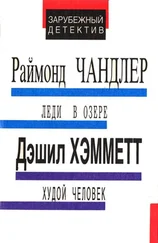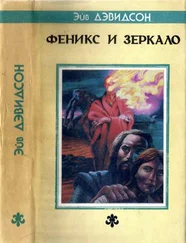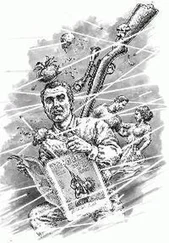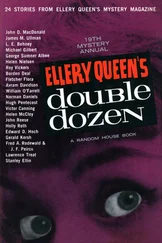Аврам Дэвидсон - Peregrine - primus
Здесь есть возможность читать онлайн «Аврам Дэвидсон - Peregrine - primus» весь текст электронной книги совершенно бесплатно (целиком полную версию без сокращений). В некоторых случаях можно слушать аудио, скачать через торрент в формате fb2 и присутствует краткое содержание. Год выпуска: 1971, ISBN: 1971, Издательство: New York : Walker, Жанр: sf_all, на английском языке. Описание произведения, (предисловие) а так же отзывы посетителей доступны на портале библиотеки ЛибКат.
- Название:Peregrine : primus
- Автор:
- Издательство:New York : Walker
- Жанр:
- Год:1971
- ISBN:0802755461
- Рейтинг книги:5 / 5. Голосов: 1
-
Избранное:Добавить в избранное
- Отзывы:
-
Ваша оценка:
- 100
- 1
- 2
- 3
- 4
- 5
Peregrine : primus: краткое содержание, описание и аннотация
Предлагаем к чтению аннотацию, описание, краткое содержание или предисловие (зависит от того, что написал сам автор книги «Peregrine : primus»). Если вы не нашли необходимую информацию о книге — напишите в комментариях, мы постараемся отыскать её.
Peregrine : primus — читать онлайн бесплатно полную книгу (весь текст) целиком
Ниже представлен текст книги, разбитый по страницам. Система сохранения места последней прочитанной страницы, позволяет с удобством читать онлайн бесплатно книгу «Peregrine : primus», без необходимости каждый раз заново искать на чём Вы остановились. Поставьте закладку, и сможете в любой момент перейти на страницу, на которой закончили чтение.
Интервал:
Закладка:
Appledore gave the delighted snort of a pedant who has caught someone in error. “You would, would you? Then you’d be wrong. Chrestus is a Latin form of the Greek for righteous, and the phrase, I clearly remember, is from Tacitus. Refers, supposedly, to the Jews; probably intended to refer to the early
Christians. And then we have this: Say that it is blasphemous to talk of separating the sheep from the goats, for the sheep and the goat are one. Should have read Aristotle on the Categories. And, oh, just picking at random, a question as to, was the morbus divus the same as the morbus demoniacus and if so, was it from God or from the Devil, which? That is, the dreaded falling sickness, as the folk call it . . . shriek, convulsion, unconsciousness ... in a word, epilepsy. Also—it notes—called morbus comitialis, because if anyone was seized during any public or official gathering, said convocation automatically dissolved. Then comes a receipt for how to mummify cats, in your basement—very useful, I’m sure, if you ever have a cat you want mummified cheap. And just all sorts of goodies like that. . .”
He looked at his former pupil with tired, kindly eyes. “But why should you be interested in such a budget of dead-men’s bones, my boy? Perk up, this voyage will soon come to an end, or, at least, this leg of it. Big port ahead; singing and dancing, and something better to eat and drink than ship’s stores pickled in sheep-stink. And if things prove peaceful and remain so, perhaps we’ll get our land legs back again.”
Peregrine grunted, mumbled that perhaps he’d even, somehow, be able to send a letter back to his dadda.
Appledore snapped his fingers, slapped his brow, and got up, rather hastily. “I clean forgot! And not only that — I clean forgot to tell you—strictest confidence, of course—I’ve been engaged as Augur, part-time and pro tern, by—but I don’t know that I can disclose that just yet. Excuse me. Be back in a jiffy.” He scuttled off, muttering as he went. “Favorable auspices from north-north-west, with aspects similar for tomorrow. Favorable—”
Peregrine stretched out, then rolled over, with his head cradled in his arms, and (slowly, slowly) relaxed.
What think you, Brother?
It may be so. The day is not yet done, nor the shadows fled away.
After the shadows flee away, comes the greater shadow which is Night.
This tablet is as yet clean—think you not?
It is cleaner than most—no more.
What see you there, then?
/ see hunger and thirst and venery.
He is a man. Brother.
As he is now, so once were we.
What think you, Brother?
I would wait, Brother, I would yet wait. . .
Peregrine stirred, muttered, then once more fell silent.
He was awakened by the blaze of noon, slipped into the water tull-clothed and refreshed himself, then walked along the shore and let the clothes dry on him. Presently he heard the nicker of the signal of the Huns, and he turned aside in its direction. There was Attila, and there were two of his men and someone between them, half on the ground and still struggling.
The Allied King said, succinctly, “Catchee spy.”
"I deny it!" a somewhat muffled voice declared. “I deny the allegation, and I defy the allegator. Unhand me, heathen hound!”
“Let’s see him,” Peregrine said.
“Him" proved to be a portly, bearded man somewhat dustier for his encounter with the Hordesmen. “Let’s hear some I.D., please,” said the Chief of Staff.
“Would you prefer it in iambic pentameter, or in Corinthian?" queried the captive. Peregrine to this making no answer, the man went on to say that he was P. Cato Decimus Brutus Darlangius Philipus G., “And a member of the Imperial Senate, so have a care, sir. You will have a care, won’t you?” He patted his pouch, shrugged. “Pardon. I would gladly have offered you one, but I seem to have left them all behind. Ah, well.” He scanned the younger man, not seeming much incommoded by the circumstances of the meeting. “Ah, yes, the face is familiar; however, last year’s model was taller, broader, and blonder . . . and you should have seen some of the broads, too.” Senator P. C.D.B. Darlangius P.G. smacked his lips and winked. “Let me see,” he continued. “Your name was certainly mentioned over more than one flagon of falernian. Haggard? Tiercel? Gyrfalcon? No, no, none of those. Shall we try for the sixty-four sesterces? Peregrine?
“What—? Who—? How—?
The senator smiled at the effect he had produced, an indication of assurance which did not please the little king, who growled, “Talkee-talkee all-same too muchee. We makee sharp
stick, hammer up—” The senator’s face showed an alarm which he perhaps did not entirely feel; nevertheless, he placed his hands against his well-rounded posterior.
“Little Brother,” he said, “you have impetuous pals.”
At which Peregrine’s face lit up, and all—or at least some became clear. “Austin! You know my brother Austin!”
“I do indeed know your brother Austin. We spent some very pleasant times together a while back. Indeed, I offered to use my best efforts to have him placed as Senator for the First Ward, West, in Chiringirium. But some absurd religious compunctions restrained him .... My dear boy, I am really very pleased to meet you. Er,” he circled around so that his back was no longer to the Huns, and said, “won’t you please assure your right honorable and gallant friends that—”
Peregrine gestured. “Yes, that’s all right,” he said, rather to the disappointment of his right honorable and gallant friends; “he really is a friend of my brother’s.” The Huns grumbled, but cantered off. Peregrine observed that one of them was tenderizing another steak ... or perhaps it was still the same one. “But before we go into that,” said Peregrine, “would you mind telling me what you were doing when they found you? It is still rather far from your city.”
The full and full-bearded face of Senator Darlangius Philipus went suavely blank. He waved his hand. “My vast estates lie over there. That is to say, they used to. That is to say, the estates are still there where they always were, though now forming the property of a tax-farmer named Macromius, with whose wife a lady of impeccable piety—I was discussing some alternative readings in various verses of the longer Psalms, when her husband unexpectedly arrived. The citizen Macromius is, shall we say, a man not over-friendly to book-learning—book-keeping, yes. —You understand, my boy. On receiving news of his close arrival, I felt my presence to be superfluous. And, as I had been conveyed thither in the litter of the Lady Macromius . . .” He waved his hand. Further explanation, the gesture implied, would be tedious . . . and, between men of the world, unnecessary.
He placed his hand on the younger man’s shoulder as they walked along, and he talked of Austin, who (Peregrine was disappointed, but not surprised to hear) had moved on, almost a year ago. Peregrine gathered that the decline in the Senator’s
personal fortunes, occasioned by such factors as bad crops, the competition of foreign grain, high taxes, malevolence in high places, jealousy in low, over-confidence and excessive generosity; the Senator bore with a truly Christian resignation. “Of my wounds suffered in my country’s wars, my descent from Patricius Platus who slew the outlaw Guillermus Haedus, I say nothing. Sic Jriatur crustulum, as Ovid puts it; ‘Thus,’ or, ‘In that manner, does the cookie crumble.’ I have, after all, my collection of first editions of the Patristic Fathers; I have a certain amusing skill in games, an ear for good poetry, an eye for good women—‘Good,’ a purely subjective term, anyway, as Aristotle would be the first to concede, delicious pilaffs he used to make, but his baklava was a bit too sticky—if there is any thing I abhore more than another it is having to pause in the middle of a philosophical discussion to lick honey off my fingers . . . Where was I? Ah yes. Licking honey. Just so. Yes, your big brother and I had a very pleasant time together, but he felt he had to move on. There was a certain man in highoffice—Observe that I do not, I repeat, not, denominate our noble Caesar, C. Petronius Niger, sometimes called Black Pete—who has a tendency to glance askance at men of verve and capacity, unless they have the good sense to play themselves down; and Austin wouldn’t, you know, he just wouldn't. So he left. Smart boy. You look very much like him.”
Читать дальшеИнтервал:
Закладка:
Похожие книги на «Peregrine : primus»
Представляем Вашему вниманию похожие книги на «Peregrine : primus» списком для выбора. Мы отобрали схожую по названию и смыслу литературу в надежде предоставить читателям больше вариантов отыскать новые, интересные, ещё непрочитанные произведения.
Обсуждение, отзывы о книге «Peregrine : primus» и просто собственные мнения читателей. Оставьте ваши комментарии, напишите, что Вы думаете о произведении, его смысле или главных героях. Укажите что конкретно понравилось, а что нет, и почему Вы так считаете.






